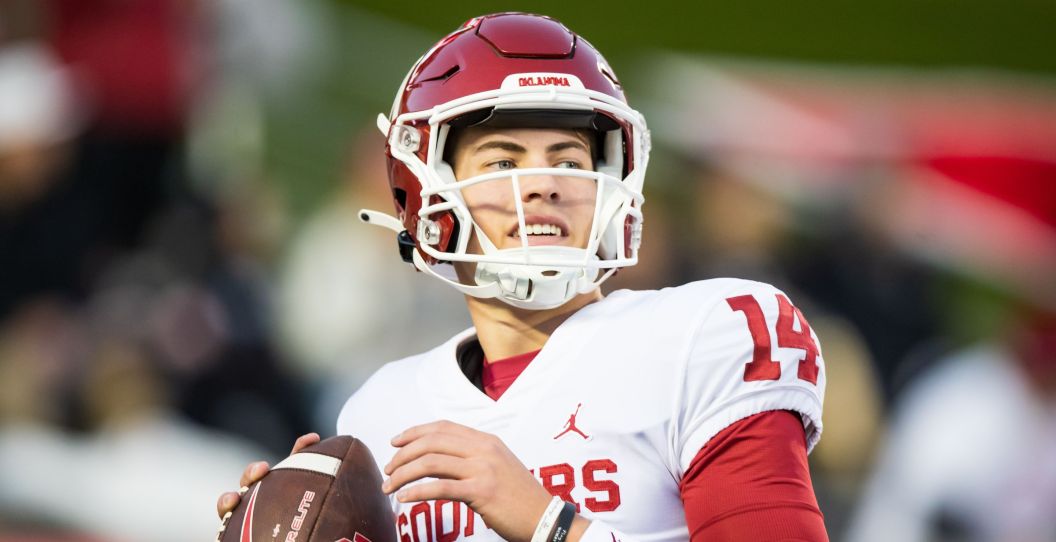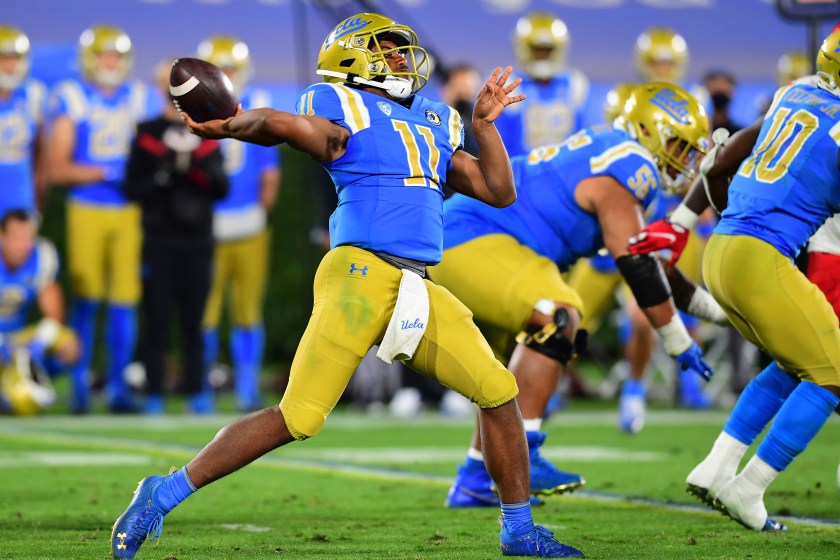Since the release of "NCAA Football 14" on July 9, 2013, college football fans worldwide have been waiting for the video game's franchise's next installment.
Videos by FanBuzz
Those same fans got some good news in November 2022, when EA Sports vice president Daryl Holt told ESPN's Michael Rothstein that a new iteration of the franchise would come out in the summer of 2024.
"That's the best date for us to bring the game that we think is going to meet or exceed our player expectations ... and cover the breadth and scale of what we want in the game," Holt said. "We're trying to build a very immersive college football experience."
Well, that could be in jeopardy as players could potentially hold out due to the payment structure involving the game.
How Much is EA Sports Offering College Football Players?
In May, Pete Nakos of On3 reported that the total payout for players would be about $5 million. At first, that sounds like a decent amount of cash — but after you consider every player in the Football Bowl Subdivision, it shakes out to about $500 per player.
In a time of name, image and likeness deals that are worth immensely more than that, it's unlikely that the players will go for such a low wage.
Sure, many players would likely accept the $500. But players such as USC quarterback Caleb Williams are worth way more than that, which could result in him opting out of the game. There could be a "domino effect," as Oklahoma quarterback General Booty pointed out.
"We've actually been talking about that in the locker room. So, we've all talked about it because we want the game to come out, obviously. But we were saying if they come out and try to lowball and say we want to give everyone $200. Well, guys maybe like, like you mentioned Caleb Williams, may say no and then he's not in the game. Then all the USC fans — who wants to buy the game and not play with him, you know?" Booty told On3.
"And then he does it, then someone else does it and then it's a domino effect and then it's ruined. So, I think that's going to be very critical to how they put it together. They are going to have to have one price, and I say like $600 to $800 would get everyone in. But some of the big guys, you know, that deserve it, that have been playing, starting for a couple of years, put up the numbers, they may have to sit down and negotiate with them because that's going to ruin the game if they don't have some of these star guys in there," Booty said.
Justin Falcinelli, vice president of the College Football Players Association and former Clemson lineman, simply wants players to be paid a fair price. He's telling players to boycott the deal with EA Sports.
"All current players should boycott this deal. It is an opt-in deal, and they should not opt into it. It is just a ridiculously low amount of money," Falcinelli told On3. "Given the context and the hype that surrounds this game. When we first heard the number, we're like, 'Alright, that sounds low. Let's go figure out if it is low.' And started talking to guys, talked to some of my friends, some guys who are still playing in the NFL. 'So, what are NFL players getting paid for Madden?' And the numbers we were given were from 2019, it was disclosed that they got, I think, about $17,000. And then a current NFL player told us that he got a check for $28,000 this year for Madden.
"You should not participate in this. It is a simple cash grab to just try to get you for the lowest amount possible. And it's OneTeam Partners and all these organizations that don't really represent the players' best interest."
Some players agree, and some don't.
What Players Are Proposing
Other players, such UCLA quarterback Chase Griffin, point out the idea of revenue sharing.
"I think whenever you talk about any type of revenue share, there has to be some equity in it," Griffin told On3. "Not only, I think, a flat rate but any type of deal where you're reusing the name, image and likeness, there's gotta be some subsidiary payment. So, I think the next step is an equity deal with EA where the players who make those games possible have equity and a stake in the performance of the game.
"That's how it is in every other talent business with residual licensing, you know with music or TV," Griffin said. "If you're an actor or you're a producer or you're an artist, the more streams, the more uses that your song gets or your show gets, you get paid off that. I think a similar model eventually, I think that'd be favorable for athletes and really in the business sense the most credible way to go about it."
It seems as though a $500 payment — and the fact that the video game is returning — is enough for some players, including UAB defensive tackle Fish McWilliams.
"Obviously, just having the video game back itself would be OK with me," McWilliams said. "I appreciate the NIL for the NCAA game. But I really just want to play the video game and just get it back out there cause it's been gone for almost 10 years now."
There appears to be mixed sentiment about how all of this will happen, but potential holdouts are only possible from the top-line, Heisman-like players.
But let's be honest: If players such as Williams, Drake Maye, Bo Nix and others were to opt out, would the game be as successful as we all remember?
We'll have to see what comes of this as that summer 2024 release date inches closer.


